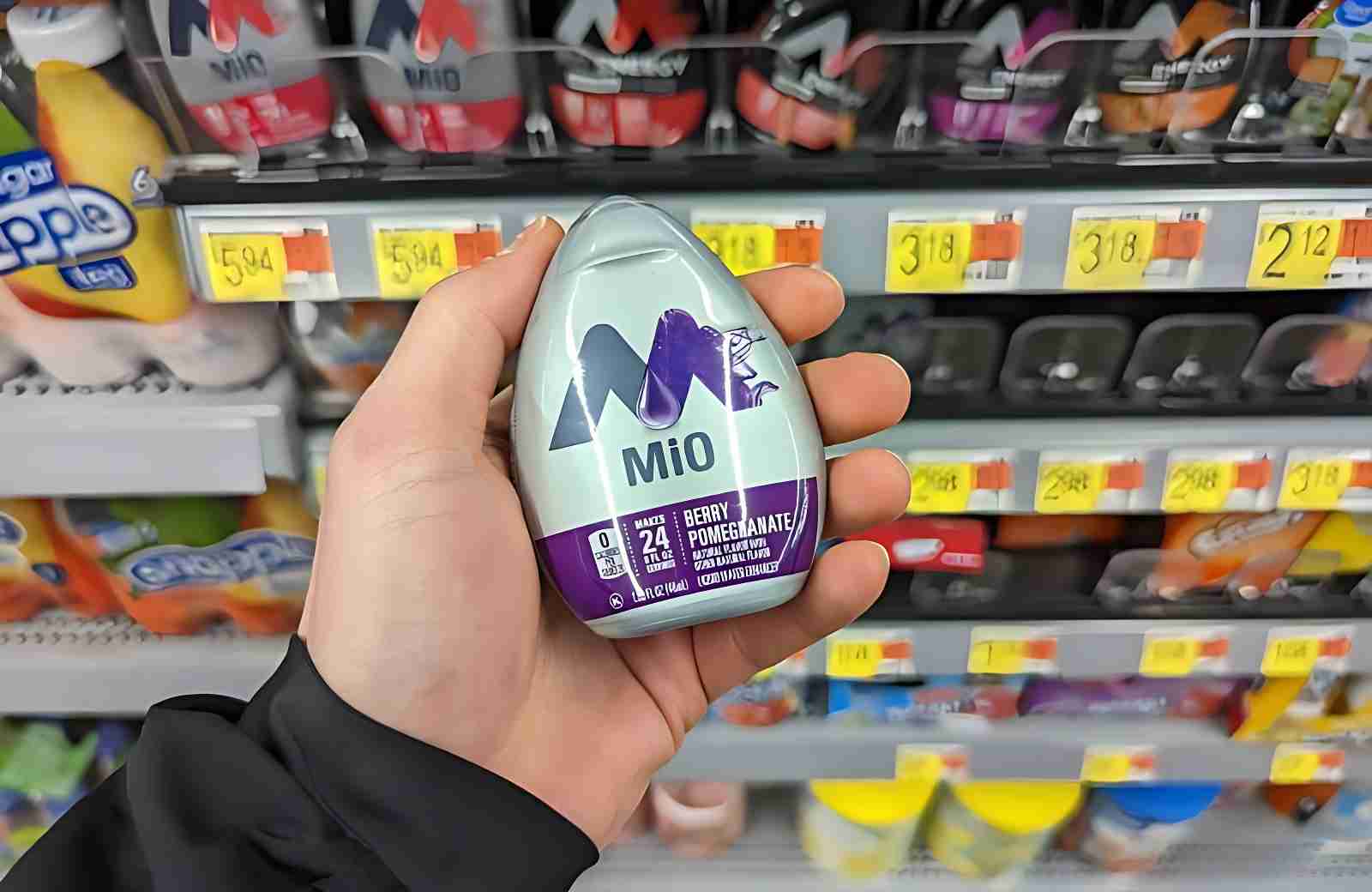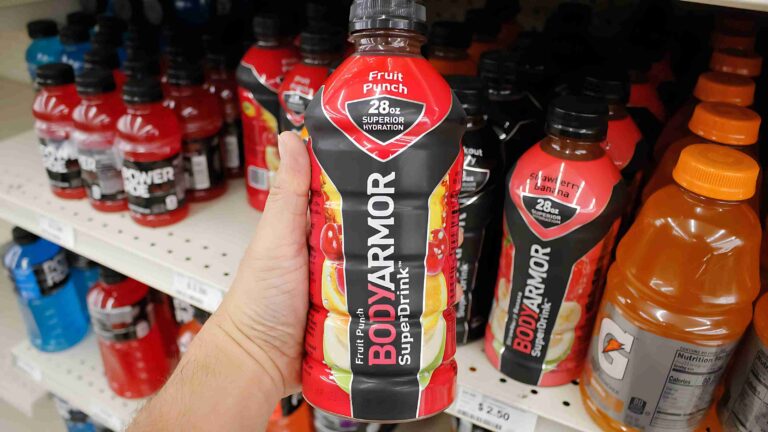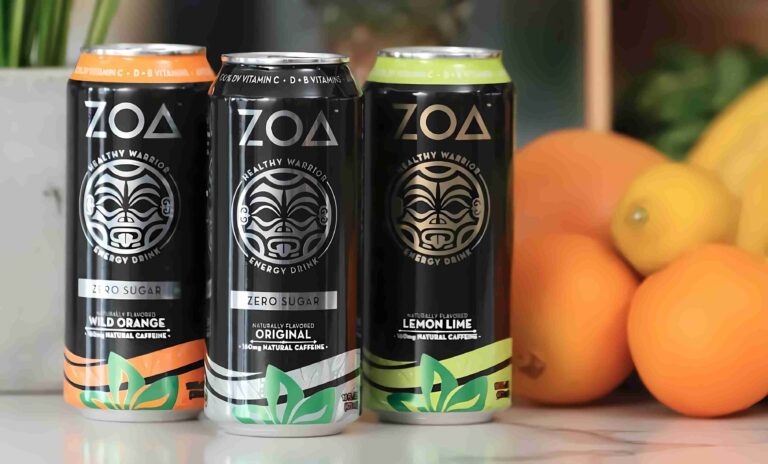Is MiO Bad for You? Health Risks and Safer Alternatives!
Mio has become a popular choice for those looking to add flavor to their water, but you might be wondering if it’s really good for you. With its enticing flavors and convenience, it’s easy to see why many people reach for Mio instead of sugary sodas or juices. However, the ingredients in these liquid water enhancers can raise some eyebrows.
In this article, you’ll explore the potential health impacts of using Mio regularly. From artificial sweeteners to various additives, understanding what goes into your favorite drink is crucial.
So let’s explore whether the benefits outweigh any concerns and help you make an informed decision about incorporating Mio into your hydration routine.
What Is MiO?
MiO is a water enhancer designed to add flavor to your water without any calories. It’s a concentrated liquid, which means you only need a small amount to make a significant difference in taste. Typically, you’ll mix about 1/2 teaspoon (2 mL) of MiO with 8 ounces (237 mL) of water.
MiO comes in various flavors, appealing to different tastes. You can find options like the Original line, which includes popular flavors such as fruit punch and berry pomegranate, or the Energy line, which contains caffeine for an energy boost.
Additionally, MiO is available in a variety of packs, allowing you to try multiple flavors before settling on your favorite.
Using MiO makes it easier to drink more water throughout the day. Many people struggle with plain water due to its lack of flavor; MiO addresses this issue effectively by providing enjoyable alternatives without adding sugar or calories.
Key Ingredients in MiO
MiO contains several key ingredients that play a significant role in its flavor and appeal. Understanding these ingredients can help you make informed choices about your beverage options.
Artificial Sweeteners
MiO includes Artificial Sweeteners to provide sweetness without calories. Here are the main types:
- Ace-K: Ace-K is 200-300 times sweeter than sugar. It remains in the environment for a long time, which raises concerns about its impact on health. Studies indicate that it may lead to weight gain in male mice and disrupt the gut microbiome.
- Sucralose: Sucralose offers even more sweetness, being 385-650 times sweeter than sugar. It’s partially digested by the body, which can alter blood glucose and insulin levels. Some research suggests it might act as a weak mutagenic agent.
- Stevia: Stevia is a plant-based sweetener, ranging from 50-350 times sweeter than sugar. It’s non-cariogenic and has potential health benefits. It may decrease appetite and does not increase post-meal blood sugar levels, making it a preferred option for some consumers.
Being aware of these artificial sweeteners helps you consider how they fit into your overall diet and health goals while using MiO as a water enhancer.
Color Additives
MiO water enhancer contains artificial colors, specifically Red 40 and Blue 1. These additives have sparked debate regarding their potential health effects.
Some studies indicate a link between these colorings and hyperactivity in children, alongside other health problems.
Regulatory bodies, such as the FDA, classify these additives as safe when consumed within specified limits.
For instance, the FDA established acceptable daily intake levels for food colorings to ensure consumer safety. Despite this, ongoing discussions about their impact on health persist.
Research suggests that approximately 10% of children may react negatively to artificial colors, leading to increased attention on what you consume.
Understanding the implications of these ingredients can help you make informed choices about using MiO as part of your hydration routine.
It’s crucial to read labels carefully and consider personal sensitivities or allergies when selecting products containing artificial colors.
If you’re concerned about potential health risks associated with color additives, exploring alternatives without artificial dyes might be beneficial for your well-being.
Preservatives
Preservatives in MiO play a crucial role in maintaining product freshness and shelf life. Common preservatives include potassium sorbate and sodium benzoate. Both substances help prevent spoilage by inhibiting the growth of mold, yeast, and bacteria.
While these preservatives are generally recognized as safe by regulatory bodies like the FDA, some people express concerns about their potential effects on health. For instance, studies indicate that sodium benzoate may cause allergic reactions in sensitive individuals.
Moreover, when combined with certain artificial flavors or colors, it can form benzene, a known carcinogen under specific conditions.
In moderation, these preservatives typically pose minimal risk for most consumers. However, excessive consumption of products containing them could lead to negative health effects over time. It’s essential to read labels carefully and be aware of how much MiO you incorporate into your diet.
If you’re concerned about additives or preservatives in your beverages, consider looking for natural alternatives without synthetic ingredients or those that use natural preservation methods instead.
This approach ensures you stay hydrated while avoiding potential risks associated with artificial additives found in products like MiO.
Also Read: Is Vitamin Water Zero Good for You
Health Risks Associated with MiO
MiO, a popular water enhancer, contains several ingredients that raise health concerns. Understanding these risks can help you make informed choices about your beverage options.
Impact on Gut Health
Artificial sweeteners like acesulfame potassium (Ace-K) and sucralose present in MiO may disrupt your gut microbiome.
Research shows that these sweeteners can alter the balance of bacteria in your intestines, potentially leading to digestive issues.
Maintaining a healthy gut is essential for overall well-being, as it plays a critical role in digestion and immune function.
Potential Metabolic Effects
Studies indicate that consumption of artificial sweeteners may have negative effects on metabolism. Specifically, Ace-K and sucralose can impact insulin response, which regulates blood sugar levels.
Disruption in insulin regulation might lead to weight gain or difficulty managing diabetes over time. A 2018 study found that individuals consuming high amounts of artificial sweeteners had higher rates of metabolic syndrome compared to those who avoided them.
Allergic Reactions
Some components in MiO, particularly azo dyes, may trigger allergic reactions or food intolerances. These reactions could manifest as skin irritations, respiratory issues, or even hyperactivity in children.
If you experience any adverse symptoms after consuming products containing artificial colors or additives, consulting a healthcare professional is advisable.
By understanding the potential health risks associated with MiO, you can better assess whether it fits within your dietary preferences and health goals.
Also Read: Is Amino Energy Good for You
Benefits and Drawbacks of Using MiO
MiO is a popular water flavor enhancer, but it comes with both benefits and drawbacks. Understanding these can help you decide if it’s the right choice for your hydration needs.
Hydration and Fluid Intake
MiO can make drinking water more appealing. By adding flavor to plain water, you may find yourself drinking more throughout the day. Increased fluid intake supports good health, helps maintain energy levels, and aids digestion.
According to some studies, staying hydrated can improve cognitive function by up to 30%, which is important for daily tasks.
Nutritional Considerations
While MiO is calorie-free, it contains artificial sweeteners like sucralose and acesulfame potassium. These ingredients provide sweetness without extra calories but may carry health risks.
Research associates artificial sweeteners with potential issues such as hyperactivity in children or allergic reactions in sensitive individuals.
Additionally, preservatives like sodium benzoate have raised concerns about liver damage and DNA toxicity when consumed in large amounts over time.
| Nutritional Aspect | Details |
|---|---|
| Calories | 0 calories |
| Artificial Sweeteners | Sucralose, Acesulfame Potassium |
| Preservatives | Sodium Benzoate, Potassium Sorbate |
| Potential Health Risks | Hyperactivity, Allergic Reactions |
Considering these factors allows you to weigh the convenience of MiO against its potential health impacts on your body. Making informed choices aligns with your dietary preferences and health goals.
Safe Alternatives to MiO
Choosing alternatives to MiO can enhance your hydration experience without the concerns associated with artificial ingredients. Here are some safe and flavorful options for you:
- Natural Flavorings: You can easily add natural flavorings to your water, such as:
- Lemon or Lime Slices with Basil Leaves: Citrus adds a refreshing taste while basil provides an aromatic touch.
- Apple and Cinnamon Sticks: This combination offers a sweet, warm flavor perfect for any time of year.
- Cucumber Slices and Lemongrass: Enjoy a crisp and refreshing drink that hydrates effectively.
- Orange Slices and Vanilla Bean or Extract: The sweetness of orange paired with vanilla creates a delightful twist.
- Pineapple and Berries: These fruits infuse water with tropical sweetness, making hydration enjoyable.
- Herbal Teas: Brewed herbal teas provide various flavors without added sugars or chemicals. Popular options include:
- Peppermint Tea, which is refreshing,
- Chamomile Tea, known for its calming effects,
- Rooibos Tea, rich in antioxidants.
- Infused Water Bottles: Using infused water bottles allows you to create flavored water by soaking fruits, herbs, or vegetables. Examples include:
- Adding slices of strawberries with mint,
- Mixing kiwifruit with lime for a unique taste.
- Coconut Water: A naturally sweet alternative that contains electrolytes, coconut water helps keep you hydrated while offering health benefits.
- Sparkling Water with Fruit Juice Splash: If you enjoy carbonation, mix sparkling water with a splash of 100% fruit juice for flavor without excessive calories or sugar.
By choosing these alternatives, you maintain flavor in your drinks while avoiding potential side effects associated with MiO’s artificial ingredients.
Also Read: Is Cellucor C4 Energy Good for You
Conclusion
Choosing whether Mio is right for you involves weighing its convenience against potential health concerns.
If you’re sensitive to artificial sweeteners or additives it’s wise to consider alternatives that offer hydration without the drawbacks.
Natural flavorings and infused waters not only enhance your drinks but also support overall well-being.
Ultimately, staying informed about what you consume empowers you to make healthier choices.
By opting for natural options you’ll enjoy flavorful hydration while avoiding the risks associated with artificial ingredients. Prioritize your health and find the best solution that fits your lifestyle.
Frequently Asked Questions
Can MiO cause health issues?
MiO contains artificial sweeteners and additives that some studies suggest may disrupt gut health or trigger allergic reactions in sensitive individuals. While occasional use is generally considered safe, excessive consumption could lead to potential health risks.
Is MiO a healthy choice for hydration?
MiO can enhance the taste of water, making it more enjoyable to drink. However, it doesn’t offer additional health benefits compared to plain water. It’s best enjoyed in moderation as part of a balanced diet.
What are the main ingredients in MiO?
Key ingredients in MiO include artificial sweeteners like Ace-K and Sucralose, along with natural options like Stevia. Preservatives such as potassium sorbate and sodium benzoate help maintain freshness but may raise concerns about long-term effects on health.
Are there healthier alternatives to MiO?
Yes! Healthier alternatives include using fresh fruit slices (like lemon or lime), herbal teas, infused water bottles, coconut water, or sparkling water with a splash of fruit juice. These options provide flavor without synthetic additives.
Does MiO count towards daily water intake?
While adding MiO to your water can make it tastier, it still counts as part of your total fluid intake. Remember that plain water is always the best option for hydration without added calories or chemicals.
Also Read:







